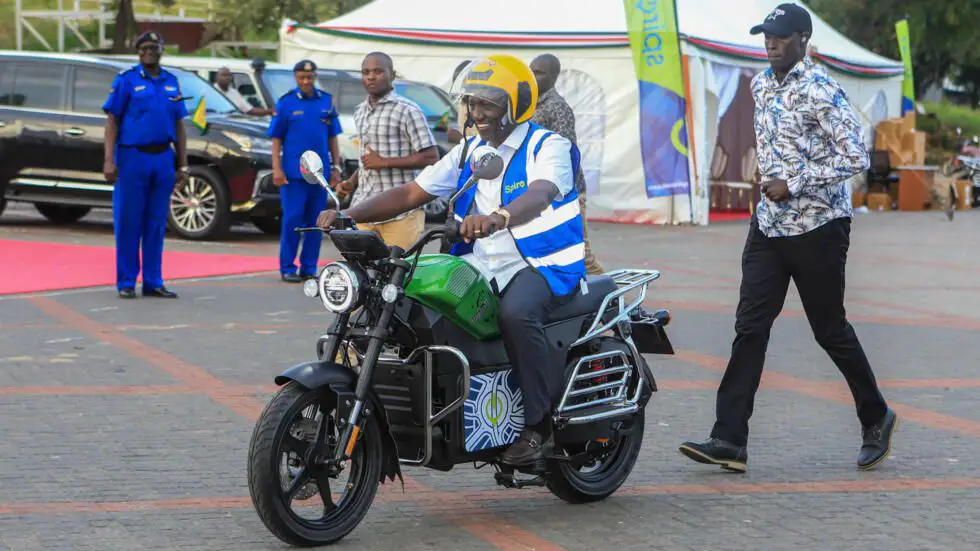Kenya to roll out electric bikes nationwide.
President William Ruto, in collaboration with the African startup Spiro said they said they are looking forward to rolling out two million motorbikes( boda boda). Ruto emphasized the significance of transitioning to electric mobility,


President William Ruto, in collaboration with the African startup Spiro said they said they are looking forward to rolling out two million motorbikes( boda boda). Ruto emphasized the significance of transitioning to electric mobility, stating it’s a crucial step to tackle issues related to pollution, health concerns, and escalating fuel expenses.
He further mentioned Kenya’s ambition to eliminate motorbikes powered by traditional combustion engines gradually. He cautioned about the rising usage of such vehicles across Africa, noting its potential detrimental impact on climate change and air purity.
Despite Africa’s contribution to global greenhouse gas emissions being a mere 2-3%, the continent faces a disproportionate brunt of climate change effects, as the UN Environment Program reported.
Spiro revealed its achievements in introducing nearly 10,000 electric bikes in various African nations, including Benin, Togo, Rwanda, and Uganda. The startup also announced its intention to establish 3,000 battery charging and exchange stations in Kenya, adding to the 350 stations across Africa. Their vision encompasses the potential deployment of over a million electric vehicles in Kenya.
President Ruto, who has been an active advocate for African initiatives against climate change, expressed optimism about Kenya’s capability to produce all its energy from renewable sources like hydroelectric, geothermal, solar, and wind by 2030. Over 90% of Kenya’s energy is derived from renewable sources, including hydroelectric and geothermal energy.
In addition to power challenges, Kenyans are also facing economic hardships due to soaring fuel prices and new taxes. The cost of living crisis has added to the struggle, making it difficult for many to afford essential expenses. Despite these challenges, the number of registered electric vehicles in Kenya remains low, accounting for less than one percent of the total 4.4 million registered vehicles, according to government figures.




